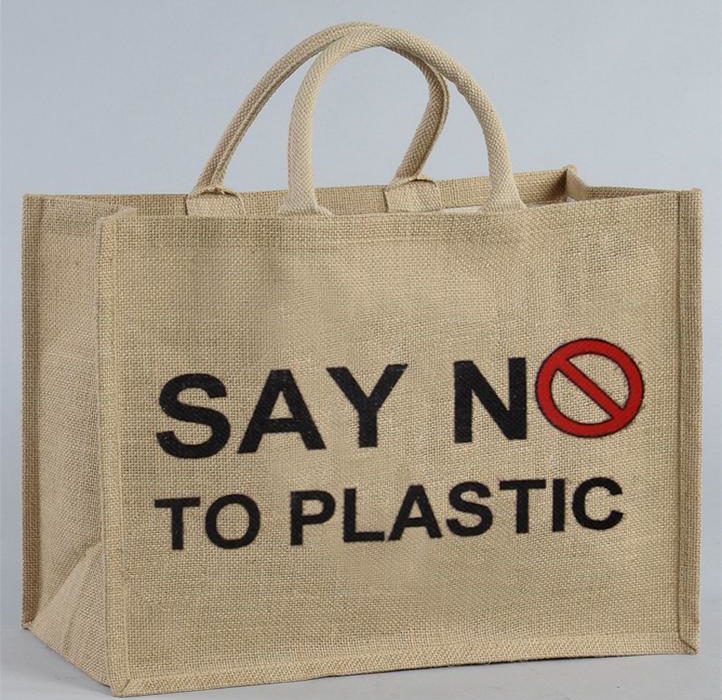In today’s world, where people care about the environment, the choice between cotton bags and plastic bags is a big one with far-reaching effects. Plastic bags used to be everywhere, but now everyone knows that they hurt the earth in a big way. On the other hand, jute bags, made from the plant jute, which can be used in many ways and is sustainable, have become a popular option. This change in taste isn’t just a passing fad; it’s a choice made out of care because jute bags are better in many ways than plastic bags. Jute bags stand out as a sign of responsible consumption because they are good for the environment, biodegrade, and look good. In this article, we will talk about the many benefits of jute bags and show how they are a good step toward a better and more sustainable future.
Understanding The Jute Bag & Plastic Bag
In a world increasingly concerned with environmental sustainability, the choice between jute bags and plastic bags has become a pivotal decision that impacts our planet’s well-being. Jute bags and plastic bags represent two distinct ends of the spectrum when it comes to carrying goods and groceries. On one hand, we have jute bags, which have emerged as eco-friendly alternatives, celebrated for their biodegradability and minimal environmental impact. On the other hand, plastic bags, often seen as convenient and inexpensive, have garnered significant scrutiny due to their detrimental effects on the environment, including pollution, habitat disruption, and their contribution to the global plastic waste crisis. Understanding the characteristics, uses, and ecological implications of these two types of bags is essential in making informed choices that align with our commitment to a more sustainable and eco-conscious future. In this exploration, we will delve deeper into the world of jute bags and plastic bags, shedding light on their attributes, benefits, and the broader implications of our choices.
Advantages of Jute Bags Over Plastic Bags:
Exploring the advantages of jute bags over plastic bags reveals a compelling narrative of sustainable choices. In a world beset by environmental concerns, this comparison becomes essential to understanding our role in preserving the planet. In this guide, try to describe this.
Eco-Friendly Material: Jute bags are made from natural plant fibers, primarily jute plants, which are renewable and biodegradable. In contrast, plastic bags are derived from non-renewable fossil fuels and can persist in the environment for hundreds of years, contributing to pollution.
Biodegradability: Jute bags break down naturally over time, returning to the earth without leaving harmful residues. Plastic bags, on the other hand, photodegrade into smaller toxic particles, causing soil and water pollution.
Reduced Carbon Footprint: Jute cultivation and manufacturing have a significantly lower carbon footprint compared to plastic bag production, which involves energy-intensive processes and greenhouse gas emissions.
Durability: Jute bags are sturdier and more durable than plastic bags, making them a practical choice for repeated use. Plastic bags often tear easily and have a short lifespan.
Reusable: Jute bags can be reused multiple times, reducing the need for constant disposal and production. This not only saves money but also reduces waste generation.
Aesthetic Appeal: Jute bags come in various designs and are considered more aesthetically pleasing than plain plastic bags, making them a popular choice for shopping and fashion accessories.
Supports Rural Communities: Jute cultivation and bag manufacturing provide livelihood opportunities for many rural communities, contributing to sustainable economic development.
Natural Fibers: Jute is naturally resistant to UV rays, pests, and moisture, making it a suitable material for various applications, including agriculture and packaging.
Less Harm to Wildlife: Plastic bags pose a significant threat to wildlife through ingestion and entanglement. Jute bags are less likely to harm animals and ecosystems.
Government Regulations: Many regions have imposed restrictions or bans on single-use plastic bags due to their environmental impact, further emphasizing the advantages of eco-friendly alternatives like jute bags.
In the end, choosing jute bags over plastic bags offers numerous advantages, not only for the environment but also for sustainable living and responsible consumer choices. Their biodegradability, durability, and minimal ecological footprint make them a compelling alternative to reduce the detrimental effects of plastic pollution on our planet.
Conclusion
In conclusion, the choice between jute bags and plastic bags is not merely a matter of convenience but a decision that carries profound environmental consequences. As we navigate an era marked by heightened awareness of our ecological footprint, it becomes increasingly evident that jute bags hold a distinct advantage over their plastic counterparts.
The advantages of jute bags over plastic bags are numerous and compelling. Jute bags are biodegradable, meaning they naturally break down and return to the earth without leaving behind harmful microplastics that pollute our oceans and harm wildlife. They are also renewable, as jute plants can be grown and harvested relatively quickly, unlike the fossil fuels required to produce plastic bags.
Furthermore, jute bags are durable and can withstand multiple uses, reducing the need for frequent replacements. Their eco-friendly production processes contribute to lower carbon emissions and a smaller overall environmental footprint.
In making the shift from plastic to jute bags, we not only reduce our individual carbon footprint but also contribute to a collective effort to protect our planet. It is clear that the advantages of jute bags over plastic bags extend far beyond personal convenience, offering a sustainable and responsible choice that aligns with our shared commitment to a healthier, more environmentally conscious future.



